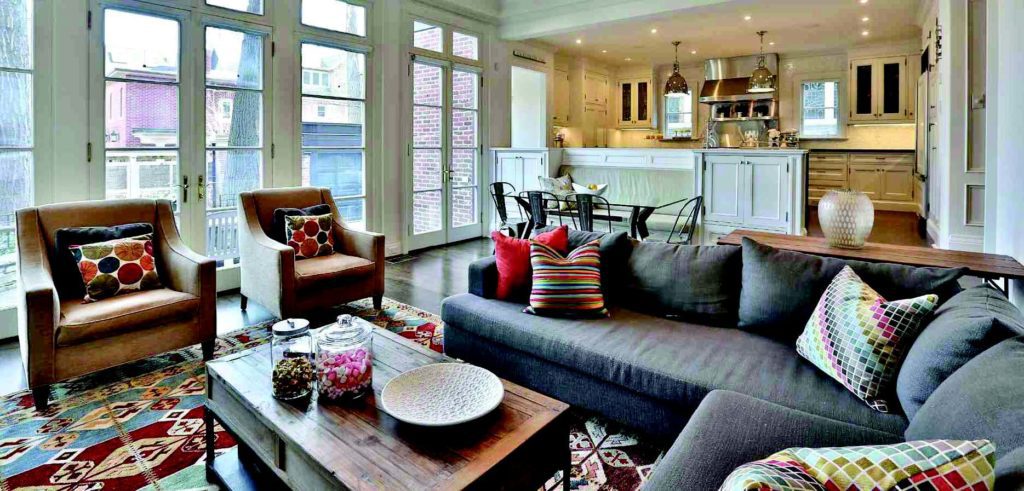Airbnbs Face Hotel-Like Regulations
By • August 9, 2017 0 693

Airbnb, the online home-sharing concept launched in 2008 in San Francisco, has become an almost billion-dollar-a-year global industry. Over the Fourth of July weekend in Washington, D.C., more than 8,000 guests stayed in Airbnbs — a 28-percent increase, according to Airbnb, which reported that Airbnb guests spent an estimated $15.8 million and saved an average of $51.75 a night by not staying in hotels.
Untold hundreds (perhaps thousands) of D.C. residents rent out rooms and entire homes as Airbnbs, some a few times a year and some all year round. But now, they may be encountering some serious new city regulations.
Pros and Cons
Airbnbs are loved and hated by various populations in Georgetown. “I have one close to my home and I hate it,” said community activist Ray Kukulski, who lives on 30th Street half a block from Washington Harbour. “One rents for $285 a night and sleeps ten. Almost every weekend it is rented out to people who start drinking early and party noisily all night. The owners of the building only use it for a rental Airbnb; it does not contribute to the neighborhood.”
But Marcella Aburdene, who grew up in D.C., has a different take. “I’ve had nothing but good experiences with my Airbnb rental,” she said. “It’s an inherited family property and, rather than sell it, making it an Airbnb has given us a steady income to maintain and improve it.” They’ve had no problems. Renters pay from $300 to $400 a night for a two-bedroom that sleeps four. Her sister lives next door.
In a recent informal discussion, Kukulski and Aurdene appreciated each other’s point of view. But both agreed that stricter regulations were probably coming and needed. Kukulski thought the maximum number of rental nights should be 15.
New Regulations
Last April, Ward 5 Council member Kenyan McDuffie introduced a bill that would require those seeking a permit to rent their homes as Airbnbs to:
• submit their properties to a full inspection to ensure compliance with fire, health, building and zoning codes and Americans with Disabilities Act requirements;
• send a notification letter to neighbors about their intent to rent out their properties;
• operate under their personal names and not through corporate entities;
• be present throughout visitors’ stays; and
• only advertise through a hosting platform like Airbnb if they have a business license.
“We should take the guessing work out of it and make sure that the District of Columbia DCRA [Department of Consumer and Regulatory Affairs] weighs in on this process, to make sure that basic safety regulations are complied with,” McDuffie said Aug. 2. “It’s serious and shouldn’t be left up to our guests,” meaning that prospective renters of an Airbnb currently must rely on prior renters’ reviews.
The bill is strongly supported by the hotel industry and by those who fear the rapidly growing alternative-hotel industry is not only undercutting traditional hotels but putting guests at risk. It is estimated that, if the bill passes, DCRA would have to hire eight new housing inspectors to perform as many as 8,500 additional inspections per year. The inspectors now make about 1,000 inspections of all kinds.
The typical Airbnb brings in just $5,100 a year in rental income, according to the D.C.-based R Street Institute.

